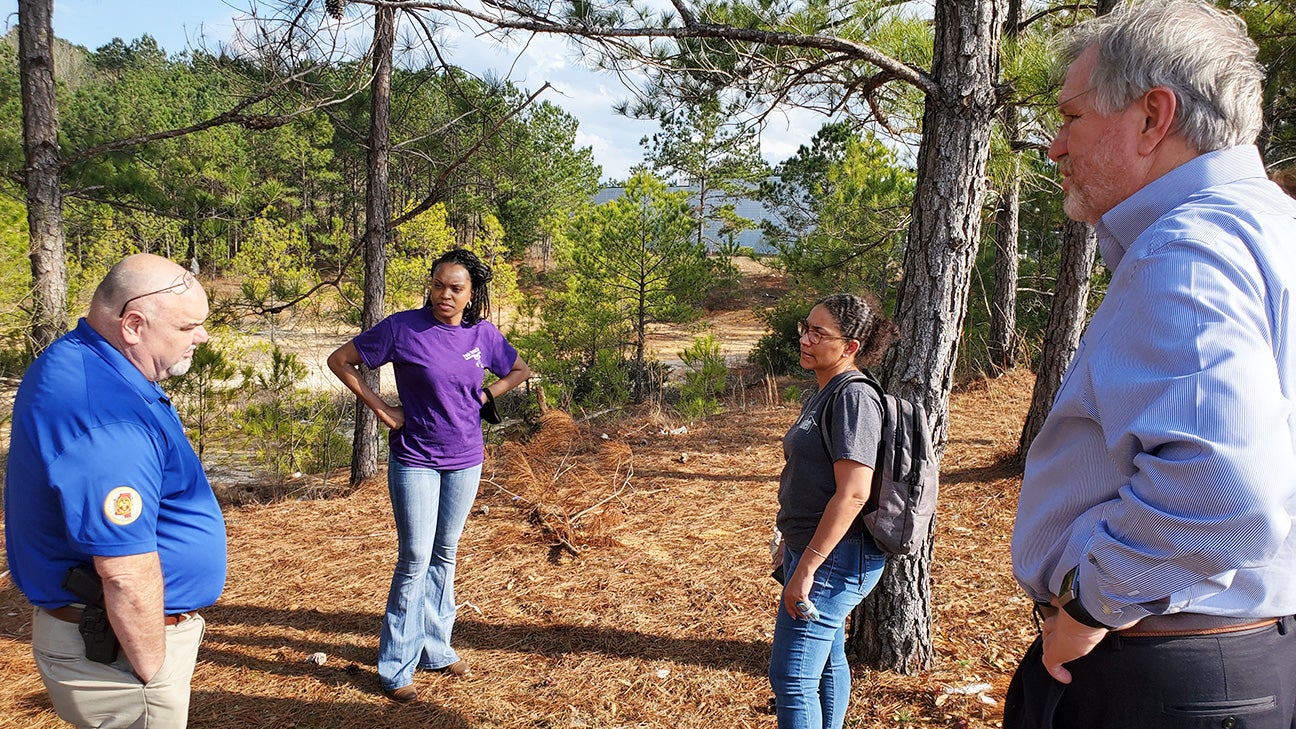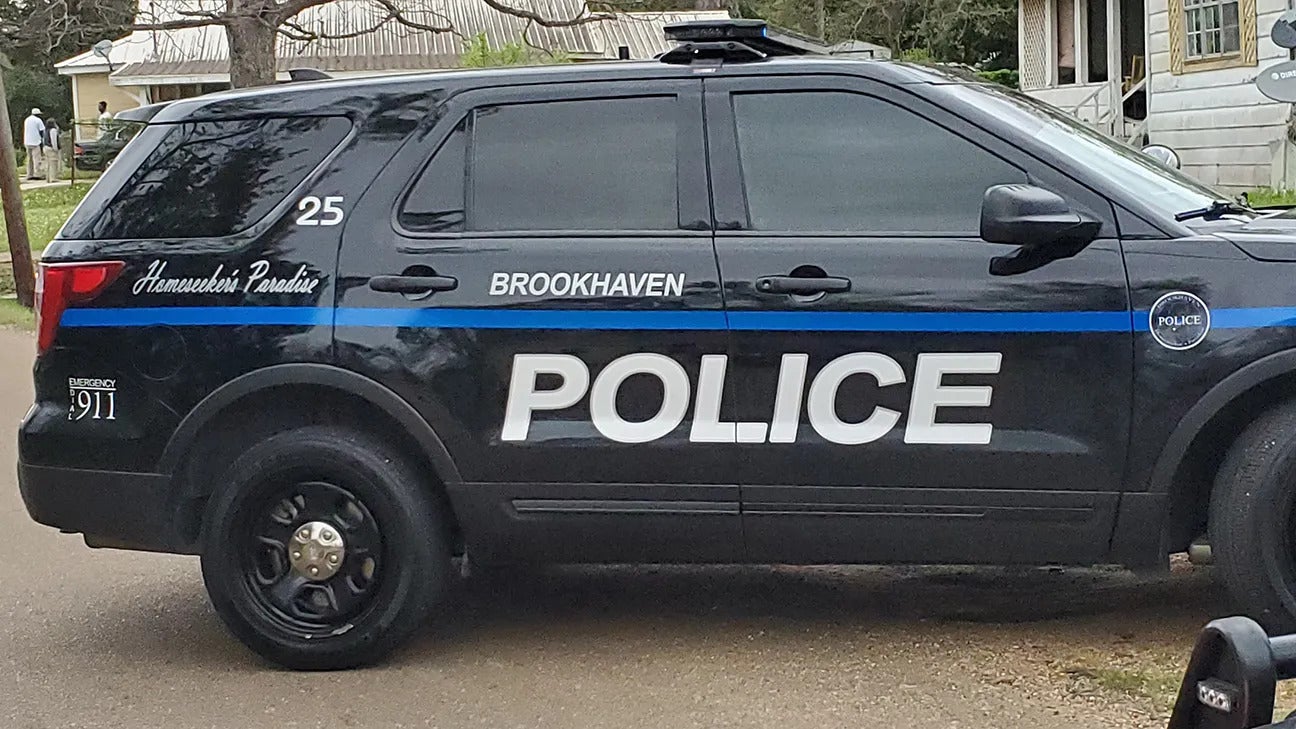Advocacy group hoping to help city’s homeless
Published 5:00 pm Wednesday, February 23, 2022

- Photo by Brett Campbell From left, BPD Det. Capt. Clint Earls, MUTEH representatives Lakitsha Rogers and Javonda Stanton, and Brookhaven Mayor Joe Cox.
Representatives from a homeless advocacy group were back in Brookhaven Tuesday.
Javonda Stanton and Lakitsha Rogers of Mississippi United to End Homelessness met with Mayor Joe Cox and Brookhaven Police Det. Capt. Clint Earls, visiting known homeless encampments around the city. Stanton and Rogers hoped to get a count of displaced people and talk with them about their circumstances and how best to provide them assistance.
At the first of several stops Tuesday afternoon, the small group stood in the edge of the pines near Walmart and discussed known issues.
In an earlier visit to the city, Stanton told the Board of Aldermen that Southwest Mississippi has the lowest population of homeless people in the state, although they are here. The majority are transients, she said, “crossing through this community to get somewhere else. This is just a place where they pause — not where they’re trying to stay.”
Homeless people are active throughout the day, trying to socialize, get something to eat, find a place to work, visiting stores or the library, until they need to return to their temporary makeshift “homes.”
MUTEH utilizes federal funding, operating according to the U.S. Department of Housing and Urban Development’s definition of who homeless people are. The definition includes people living in abandoned areas, under bridges, in dilapidated structures, etc.; persons actively fleeing domestic violence; or victims of human trafficking.
A person who is staying at the home of a friend or family member is not homeless — they are housed, sheltered — but may have other needs, Stanton said. While MUTEH cannot use funds to help these people, they can have conversations that help them direct the person to helpful resources.
“There’s help – MUTEH.org. If you encounter a person who is homeless, living in a car — that’s not fit for human habitation, there’s no plumbing, no running water, no place for you to cook to feed your family in a car — they have no place to go — if you would be kind enough, a lot of them have phones, they might have a phone when they don’t have anything else (because) it binds them to the relationships they have. Direct them to MUTEH.org,” Stanton told the aldermen.
The website has boxes on its home page the person can choose from — “I am homeless and need housing;” “I am at risk of losing housing;” or “I am a homeless veteran.”
If they complete the short registration, someone will call them within 48 hours and ask, “Where did you spend the night last night?” Their answer will determine the next step a MUTEH agent takes to provide them assistance.
Sometimes they need other help first — it’s a mental health issue or an addiction issue that needs immediate attention, Stanton said, because providing housing without addressing those issues contributes to the high recidivism rate for homeless people.
“Once you’ve been there, once you’ve learned to survive, it’s easy to go back,” she said.
Housing the homeless is important because having shelter is not a privilege, Stanton said.
“Housing is not for the privileged. It is a right, a human right. We all deserve to have it. If we can put that perspective first, that everyone deserves housing, a lot of times that’s what needs to happen first the other things will start to flow more smoothly,” she said. “It’s not, ‘When you’re sober I’ll house you,’ or, ‘When you’re clean I’ll house you,’ or ‘Make more money I’ll house you.’”
Homeless individuals must be sheltered first and services brought to them in order for them to succeed.
“It’s not a reward — it’s their right,” Stanton said. “We want to connect you to services so you can be happy and housed.”
For more information, visit MUTEH.org or call 601-960-0557.




